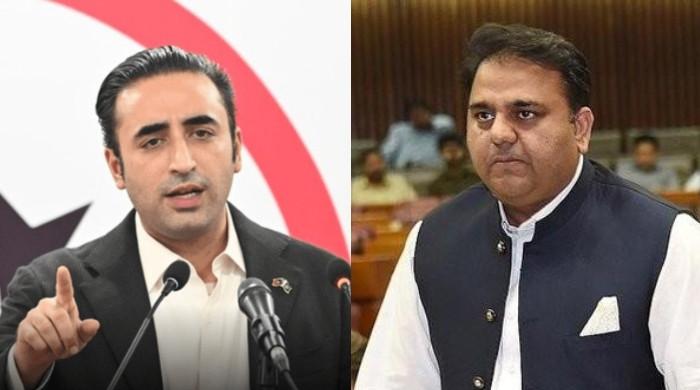Indus Waters Treaty: Social Media Clash Erupts Between PPP and PTI Leaders
A recent diplomatic development concerning the Indus Waters Treaty (IWT) has ignited a heated debate on social media between Pakistan People’s Party (PPP) Chairman Bilawal Bhutto Zardari and Fawad Chaudhry, a former federal minister and prominent figure in Pakistan Tehreek-e-Insaf (PTI).
On Friday, Pakistan officially acknowledged a Supplemental Award from the Permanent Court of Arbitration in The Hague. The award reinforced Pakistan’s stance that India cannot unilaterally halt the IWT.
The arbitration court’s verdict affirmed that unilateral actions taken by India cannot compromise the authority of either the court of arbitration or the Neutral Expert in proceedings related to the IWT.
Bilawal Bhutto Zardari responded to this development via a post on X, formerly known as Twitter, by restating that India’s decision to suspend the long-standing treaty lacks recognition under international law.
“Sindhu pay hamla na manzoor. India’s unilateral decision regarding the Indus Water Treaty have no bearing in international law,” the former foreign minister stated.
The statement alluding to “attack on Sindhu,” presented the issue from a historical and cultural perspective.
However, Fawad Chaudhry apparently misinterpreted the term “Sindhu” as a reference to Sindh province, leading him to criticize Bilawal for allegedly framing a national matter as a provincial concern.
The former minister responded to the PPP chairman’s statement in a subsequent post, asserting that the alleged “attack” targeted Pakistan as a whole, not exclusively Sindh, and suggested that Benazir Bhutto, Bilawal’s mother, would not have articulated such a sentiment.
“This [is] an attack on Pakistan, not on Sindh — unless you have also joined Sindhu Daish under GM Syed family… BB would never have made such a statement.”
Chaudhry’s mention of “Sindhu Daish” suggested a connection between Bilawal’s use of “Sindhu” and Sindhi nationalist ideology, referencing GM Syed, known for advocating Sindhi separatism within the nation’s political landscape.
Bilawal responded, clarifying, “You idiot. Sindhu River is the Indus River. The Indus Valley civilisation belongs to all of Pakistan.”
Offering a historical explanation, the PPP chairman elaborated that the term Indus is the Latinized form of Sindhu, introduced into English through the Greek term “Indos,” itself derived from the Persian pronunciation of Sindhu.
Instead of addressing the etymological clarification, Fawad responded with a personal attack.
“Obviously you have no knowledge of politics on Sindhu. That’s the problem when you become chairman on a fake will and not through political process.”
This exchange follows the federal government’s response to the Court of Permanent Arbitration’s decision, reaffirming its dedication to resolving the matter within the IWT framework and emphasizing the necessity for revitalized diplomatic engagement between the two nations.
Prime Minister Shehbaz Sharif, in his statements on June 24, also expressed willingness for de-escalation to New Delhi. “Pakistan is ready to engage in a meaningful dialogue with India on all outstanding issues, including Jammu & Kashmir, water, trade and terrorism,” he stated.
Following the deaths of 26 individuals in Indian Illegally Occupied Jammu and Kashmir in April, India suspended the Indus Waters Treaty with Pakistan.
New Delhi alleges that Islamabad orchestrated the deadly attacks, an accusation that Pakistan denies.
Based on these accusations, India initiated conflict against Pakistan, marking the most intense fighting between the two neighboring countries in recent decades, before a ceasefire mediated by the US was established.
The two nuclear-armed nations have disagreements regarding the utilization of water from rivers originating in India and flowing into the Indus River basin in Pakistan.
The Indus Waters Treaty, brokered by the World Bank and signed by both countries in September 1960, governs the use of this water.
The treaty lacks a provision that allows either nation to unilaterally suspend or terminate the agreement and it establishes explicit dispute resolution mechanisms.



Comments (0)
No comments yet. Be the first to comment!
Leave a Comment